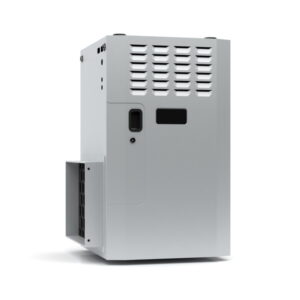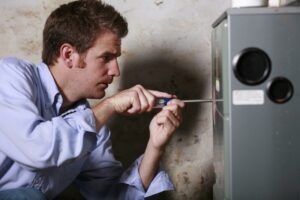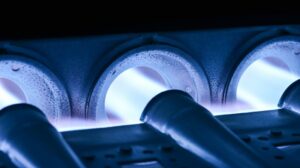Introduction to Gas Furnaces
When it comes to keeping your home warm and cozy, a natural gas furnace is one of the most popular and cost-effective heating systems out there. These furnaces work by drawing in natural gas from your municipal supply, igniting it in the combustion chamber, and using that heat to warm the air that circulates throughout your house. Not only does this process deliver reliable heat, but it also tends to be easier on your wallet when it comes to annual operating expenses, especially compared to oil or propane systems.
Natural gas furnaces are also a greener choice, producing fewer emissions than oil furnaces or propane alternatives. However, before you can enjoy the benefits of a gas furnace, your home needs to be connected to an existing natural gas line. The furnace cost, including installation, can vary quite a bit, depending on the size of your home, the efficiency rating of the unit you choose, and the local codes that govern installation in your area.To keep your furnace running safely and efficiently, regular furnace maintenance is a must. This includes cleaning the combustion chamber, inspecting the flue pipe for blockages or corrosion, and making sure all components are in top shape. With proper care, a gas furnace can provide years of dependable heat, making it a smart investment for homeowners looking to balance comfort, efficiency, and long-term savings.
What does a gas furnace heat exchanger do, and why is regular maintenance essential?
A gas furnace heat exchanger safely transfers heat from combustion gases to your home’s air while keeping harmful gases contained. Over time, metal fatigue can cause tiny cracks that may leak carbon monoxide. Annual maintenance helps detect early damage, ensuring safe, efficient operation and avoiding expensive replacements.
Furnace Installation Process: What to Expect When You’re Installing
Thinking about upgrading to a new furnace? The furnace installation process is more than just swapping out your old unit for a shiny new one, it’s a detailed job that calls for specialized training and a keen eye for safety. Furnace installation requires specialized training and tools to ensure proper setup. That’s why it’s so important to work with a reputable HVAC company that knows the ins and outs of local codes and regulations.
Here’s what you can expect: First, your HVAC technician will assess your current heating system, including the existing furnace, ductwork, and even your air conditioner, to make sure everything is compatible. Before any work begins, it is important to turn off electrical breakers and gas supply lines to ensure safety. Next comes the careful removal of your old furnace, which involves disconnecting gas lines, electrical wiring, and the ductwork system. Once the old furnace is out, the new furnace is installed, with precise connections to the gas supply, electrical system, and ductwork to ensure everything runs smoothly.
Your technician will also install a new thermostat and thoroughly test the system to confirm it’s heating your home efficiently and safely. The installer should provide a walkthrough of new equipment and how to perform basic maintenance after installation. Before they leave, you’ll get expert advice on furnace maintenance, like how to replace the furnace filter and when to schedule service checks, to help prevent heating problems and keep those energy bills in check.
By understanding the furnace installation process, you’ll see why hiring a qualified HVAC pro is so important. Not only does professional installation help you avoid costly mistakes, but it also ensures your new furnace operates at peak efficiency, giving you reliable heat and lower energy bills for years to come.
What You Should Know About Your Gas Furnace Heat Exchanger
If you’re like many homeowners in the Dunwoody area, you likely have a gas-powered furnace in your home to keep yourself and your family warm throughout the house. There are several types of heating systems available for residential use, and gas furnaces are among the most popular. The forced air furnace is the most common type of gas furnace found in homes, known for its reliable performance, but it’s important to consider both installation and maintenance costs when choosing this heating system. The average furnace replacement cost can range between $3,800 and $10,000. Furnaces are a great heating choice, as they are powerful and very cost-effective. With proper upkeep, knowing when to repair or replace your heating system can help ensure long-term performance and efficiency.
Today’s furnaces even have a higher efficiency rating than just a short decade ago. In fact, the highest AFUE (annual fuel utilization efficiency) rating for a natural gas furnace is 98%. Newer furnace models typically achieve higher annual fuel utilization efficiency (AFUE) ratings than older models. Trust us, that’s efficient! Optimizing furnace performance is even more effective when combined with upgrades like professional air sealing services, which prevent heated air from escaping your home.
In addition to high efficiency, you want to know you can rely on safety when it comes to your heating system, right? Gas furnaces certainly are not dangerous by nature. However, if you don’t take care of your furnace as you should, then it can certainly become dangerous, something a home energy audit can reveal before it becomes a costly or hazardous issue.
The most common culprit of a dangerous furnace, especially an older one, is a cracked heat exchanger. For a deeper understanding of why this issue is so critical, check out furnace repair needs and the danger of a cracked heat exchanger. Even if you don’t have an obvious problem with your furnace’s heat exchanger right now, if your system is 15+ years old, it’s time to start considering an upgrade. Newer models offer improved efficiency and safety features compared to an old furnace. An important factor to consider when upgrading is the efficiency and reliability of the new system.
Read on to learn more!
Continue Reading
Tags: Dunwoody, Heating
Posted in Heating | Comments Off on Gas Furnace Installation and Heat Exchangers: Key Facts | Cheeky HVAC












